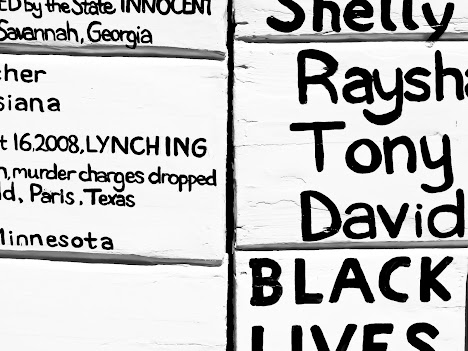Thoughts on Shamelessness
Florida legislature passes bill that limits how schools and work places teach about race and identity
https://www.washingtonpost.com/nation/2022/03/10/florida-legislature-passes-anti-woke-bill/
The measure prohibits trainings that cause someone to feel guilty or ashamed about the past collective actions of their race or sex…
These words caught my eye yesterday, they stunned me. I wanted to carefully read the article later, but it was not easy to find, it seemed to be hiding. Why do so many Americans desperately struggle to avoid feeling the tiniest bit of guilt for their country’s past and present “sins”? (aka mass slaughter, genocide, slavery, lynching, racial terror, internment camps, mass incarceration, etc., etc…) To experience guilt, shame and remorse for wrong-doings is normal, and healthy. We expect remorse from a murderer. Guilt has a necessary function, allowing us to make corrections individually and collectively, motivating us to make amends, apologize, pay reparations, set things right, restoring balance again – in one word: bring about justice. It is most often done by law, but really it is a deeper matter of the heart.
…[This measure is] a bulwark against corporate trainings and school lessons that make people uncomfortable about the actions of their ancestors.
Should German generations never have been taught about the Holocaust? Just so they would not have to feel uncomfortable? Unthinkable!
I spoke about this before: guilt can be worked through and bring us into action. But shame that has gone underground is dangerous. What I sense behind this “shameless” measure – and behind America’s deep-seated stubborn racism – is just that: hidden shame. A natural shame that has been buried deeply, and that has been poisoning the ground. The perpetual refusal to know and aknowledge the country’s dark history has resulted in a mind-boggling shamelessness in America.
Especially these days, as we witness the “far away” new war in Europe and are accusing another super power of atrocities, we should be careful and consider our own monstrosities past and present. There is no time to waste, too many problems are facing the world at large – shining light on what was and is wrong, is not just about finding the enemy or blaming. It is about opening doors for new possibilities of being human, so we can envision and work for a more just and humane future.
Excerpts:
…The bill makes it okay to talk about Pilgrims coming over on ships, but not a race of people coming who came over on slave ships,” said Sen. Audrey Gibson (D)… “Is it possible to talk about slavery, or the fact that White people, not Black people, were enslavers,” Gibson asked. “How does that conversation go so nobody feels or has the imposition of guilt or compelled to feel guilty?”
Also note-worthy on the racial reckoning front: Anti-lynching advocates have been battling to enact a federal law for more than 100 years. Each time a committed Senate minority has successfully opposed it — until this week’s landmark breakthrough.




Comments
There is also a huge amount of fear that in acknowledging the need for racial reckoning, there will be a shifting of where one stands on the rungs of the ladder, a fear of losing status and place, that a race to stay on top becomes about keeping others below. Without an acknowledgement of the humanity in all of us, the necessity of truth becomes a victim of the countervailing insular communal belief in preservation of the status quo.
One can acknowledge the need for truth, understanding, and for the collective repair of past societal wrongs causing lasting harm, without being personally responsible for having caused the harm initially.